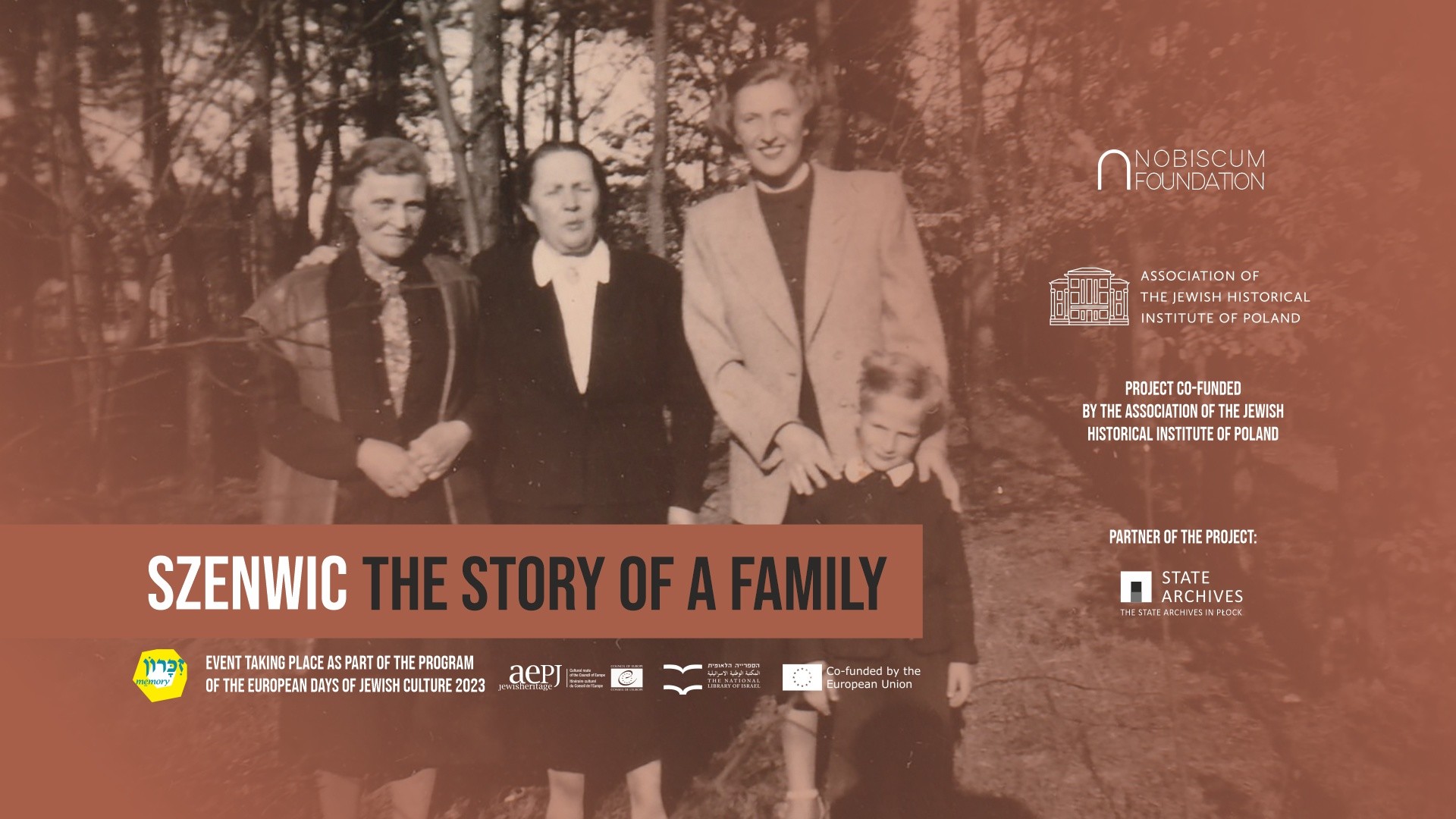On June 19, 1816, Jakub Lewin Szenwic and his wife Jacheta concluded a purchase contract for the sale of the house at No. 16, Synagogalna Street with his father-in-law Mośek Iczkowicz (ca. 1763-1822): for the amount of 16,200 zlotys, he purchased a two-story, brick residential building “fifteen cubits wide, twenty-one cubits long, including the square”, adjacent to the properties of mayor Jan Bether and Mojżesz Markus Lewita. The brick house at 16 Synagogalna Street was erected in place of the old wooden one, which was destroyed as a result of the great fire of the Jewish district, which took place on the night of July 5-6, 1810. In his own house, Jakub Lewin Szenwic ran a spice shop. His sense of business allowed him to join the group of wealthy Jewish merchants of the town of Płock in a short time, and he was able to invest more in real estate.
On June 1, 1824, Jakub Lewin Szenwic concluded a contract of perpetual lease of the municipal square at Nowa Street (real estate marked with the mortgage number 258 letter E) with the Municipal Office of the Town of Płock. Under the contract, he received a perpetual lease of a plot with an area of 102 square bars and 1½ ells of Rhenish measure, for an annual rent of 10 zlotys. In 1825, he received a loan of 750 rubles to build a house he built before 1827. It was a brick house, with one floor, with a basement, covered with Dutch tiles. On the square at the then Nowa Street (later called Szeroka, today – Józefa Kwiatka), he also built a brick outbuilding with one floor and vaulted basements, a stable with a half-timbered coach house, pigsties and two wells. In 1834, he received another loan, this time for the restoration of the house, in the amount of 450 rubles.
Jakub Lewin Szenwic was also the owner of the property marked with the mortgage number 257 (police number 6 at Nowa Street), which he purchased at a public auction by way of forced expropriation for the sum of 2,425 rubles (he was registered as its owner under the adjudication judgment of the Płock Tribunal of November 8, 1855 and application of July 17, 1872). Its description has been preserved in archival documents, in which, among others, we read:
A house with a ground floor, made of burnt brick, with two chimneys led above the roof, with apartments not only on the ground floor, but also side attics on part of the house […]. The whole house is covered with Dutch tiles, 35 cubits long, 15 cubits wide, 5 1/2 cubits high, with 2 entrances from Nowa Street, i.e. two halls and a separate third entrance to the tavern shop, at which entrances there are stairs made of pine logs constructed on the pavement…
Before 1859, Jakub Lewin Szenwic built a new brick inn with a pavilion and a stable in this place.
According to the official will testified by Jakub Lewin Szenwic before the notary Wawrzyniec Janczewski on October 30, 1864, at the time of his death, he owned real estates No. 258 letter E, 258 letter D, 255 and 257 at Szeroka Street, a house with a granary at Piekarska Street no. 88, property number 282 on the corner of Tumska and Kolegialna streets and property number 495 letter A on the corner of Tumska and Więzienna streets.
















